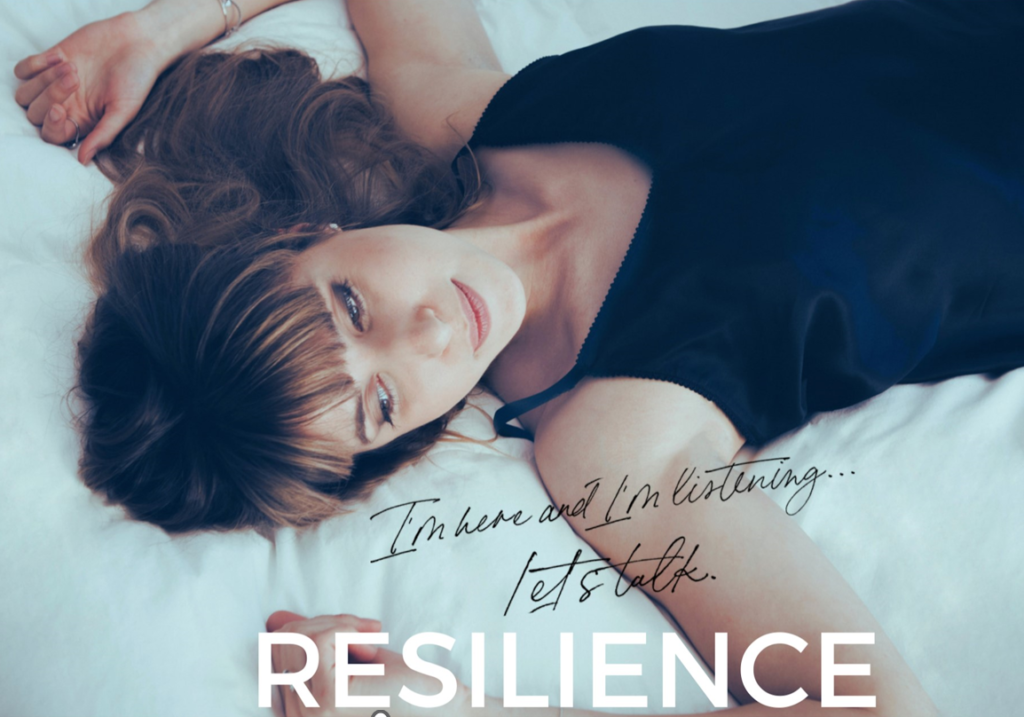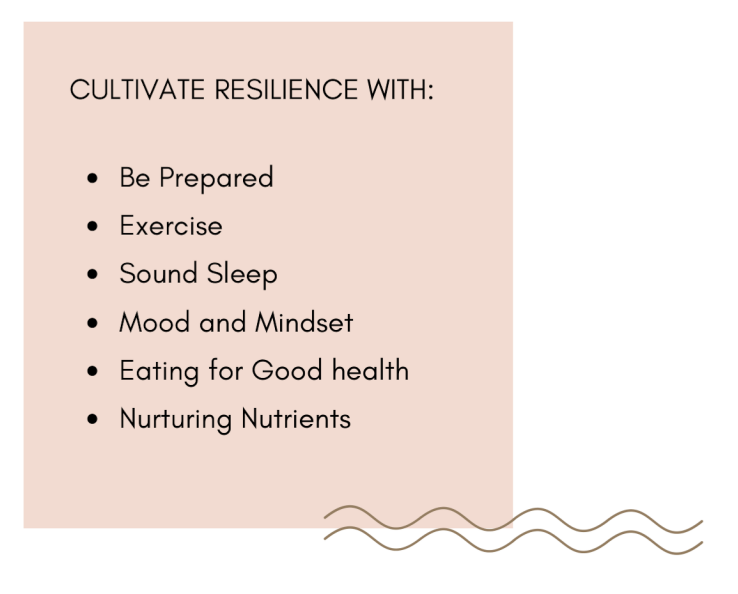Physical Resilience
Developing resilience requires inner strength and outer resources. Physical resilience is the body’s ability to function well and recover efficiently from illness or other physical demands.
It’s not always possible to prevent stressful situations or avoid adverse events. Psychological resilience is the ability to mentally and emotionally cope with challenges. Resilience is the ability to cope with tough times in life, unexpected changes and challenges. Resilience is the ability to cope with tough times through adaptability and perseverance. Strengthen your capacity to deal with trying times, both physically and psychologically, such as stress and uncertainty. The capacity to endure adversity such as physical illness and mental and emotional distress; to “bounce back” and be happy, healthy, and successful once again.

CONQUERING CHALLENGING CIRCUMSTANCES
No one is immune to challenging circumstances and the stress and worry that so often accompany them. Sometimes life throws a curveball, and you may find yourself facing an unprecedented event that feels like a threat to all that you value.
Such circumstances may pose a serious threat to finances; relationships; and mental and emotional wellbeing. You may even feel anxious about others during this time, such as elderly parents or immune compromised family members.
Like everything in life, this too shall pass. This season is only temporary. What life looks like on the other side may be unknown. But with realistic optimism, active engagement, and involvement in taking positive steps to build a brighter future, trying times can also provide opportunity. They can be a call to dismantle old, worn out ways of being, and create new systems, structures, and selves.
The implications of this type of event can be overwhelming; significantly altering the ways in which we live in the world changing how we work and interact with one another; changing our usual routines, dynamics and environments. These changes are bound to bring up uncertainty around job loss and financial instability; fears for our health; the ability to stay socially connected; and the broader economic impact.
Take this pause and review what’s most valuable to you. Are you making these things a priority in your life? If not, how can you make the necessary changes to do so now?
It’s okay to feel scared, stressed, uneasy and off balance in such circumstances. Tapping into strategies to remain calm and focused will help prevent you from succumbing to overwhelm and helplessness. Instead these give you the tools to withstand the challenges that come your way. It’s when we’re unprepared for change that we can feel caught off-guard and vulnerable.

Taking swift action to prepare for changes and potential impacts, thinking ahead and establishing firm foundations through new routines and habits, can help you regain a sense of control and confidence.
Whilst everyone processes stress and uncertainly differently, generating a sense of gratitude, compassion, acceptance, meaning and forgiveness can help to cultivate and maintain
In order to stay well during a stressful situation, it’s important to be actively involved in laying a firm foundation of good health. If you do get sick, your state of health at the time of illness can significantly influence the severity of the illness and your recovery.
CULTIVATING WELLNESS FOR MAXIMUM RESILIENCE
Optimising your physical and psychological health every day with good habits is the best strategy to ensure you stay resilient.
The key considerations during this time are keeping your physical body in shape and supported. And nurturing your nervous system, managing negative thoughts and emotions in order to remain calm and focused.
BE PREPARED
Familiarise yourself with the signs and symptoms of the illness. Know what healthy habits can support you, compile a nutritional medicine first aid kit, including nutrients.
EXERCISE
Maintain regular exercise or get started! Exercise keeps your body functioning well and aids the immune response when you get ill, reducing inflammation and supporting infection-fighting cells. The endorphins from exercise also help soothe stress. If you’re working out at home, there are plenty of ways to sweat it out. Body weight movements like push ups, lunges and burpees provide a full body workout with no equipment.
SOUND SLEEP
Sleep is a time when your body relaxes and restores itself. Poor sleep can have a negative impact on your immune system and increase the risk of illness. Restful sleep before, during and after illness can build your resilience. Follow sleep hygiene recommendations to sleep soundly.

MANAGE YOUR MOOD AND MINDSET
In a climate of uncertainty, it’s important to protect your mental health, particularly as stress can significantly impact your immune system. This means managing fears about the circumstances.
Exposure to a constant stream of negative news can fuel fear, anxiety, hopelessness and even OCD, particularly for those with preexisting mental health conditions. While
it’s important to stay informed, it can be useful to find a healthy balance around media coverage. Set limits on news and social media; seek accurate information from credible sources; and stay away from hype and panic.
Pay attention to your body, both physically and emotionally, and learn to recognise the signs and symptoms of stress, anxiety, and depression. Actively manage stress and support your wellbeing at this time by implementing strategies to maintain a calm and practical perspective, such as relaxation, mindfulness, meditation and breathing techniques.

EATING FOR GOOD HEALTH
Now is the time to make a habit of eating a healthy, balanced diet, rich in nutrients necessary for nourishing your immune system and overall wellbeing, particularly prior to winter months and changes in season.

There are many nutrients involved with normal immune system functioning. So ensure you’re eating a variety of whole foods, vegetables, fruits, lean sources of protein, whole grains and healthy fats. You may like to add some fresh garlic and ginger to your meals for an immune boost!
A healthy balanced diet will also help keep your gastrointestinal tract and it’s resident microbiota happy are also critical for optimal immune function. In addition to diet, the composition of the gut microbiota is influenced by factors such as sleep, stress and medications. So consider a holistic approach.
For our innate immune system to respond immediately and efficiently it requires a vital orchestration of micronutrients each with individual and synergistic roles. Antioxidants and optimal microbiome health also play an imperative role in bolstering immune function. And, since stress can cause suppression of vital immune cells, it is crucial to safeguard the stress response.
While a healthy and varied diet may offer some of these nutrients, certain population groups may not have adequate intake. Or they may have underlying medical conditions or stress which can increase the body’s demand,






